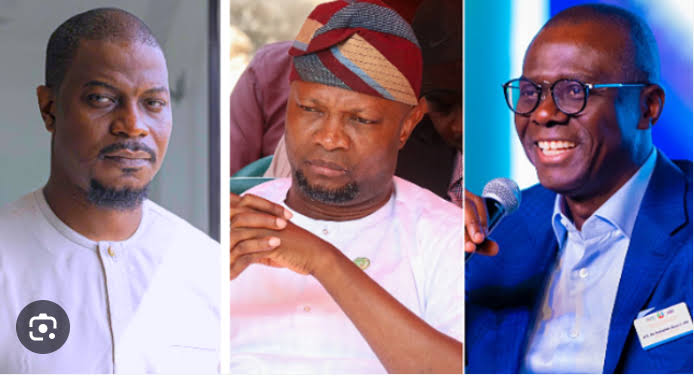Sanwo-Olu’s “Join Me” Offer to Jandor, Rhodes-Vivour: Politics or Pragmatism in Lagos?
Governor Babajide Sanwo-Olu’s olive branch extended to Gbadebo Rhodes-Vivour and Abdulazeez Adediran, his defeated rivals in the recent Lagos gubernatorial election, has stirred the political pot in the state.
Sanwo-Olu urged the duo to join the progressive governance train, noting that he and his deputy, Dr Kadri Obafemi Hamzat, do not profess a monopoly of ideas.
This is coming hours after the Supreme Court affirmed the election of Sanwo-Olu which was earlier upheld by the tribunal and Appeal Court in the state.
The Labour Party candidate in the election, Gbadebo Rhodes-Vivour, had in his appeal claimed that Sanwo-Olu’s running mate qualification, Obafemi Hamzat, had renounced his citizenship as a Nigerian.
He said, “Like I said in my acceptance speech after the results of the election were declared, there was no victor or vanquished. Our approach to governance since May 29, 2019, is a clear example of inclusive governance, which we believe in and stand for.
“I therefore invite those who are still standing on the fence to show their love for our dear state by joining the train of progressive governance. We do not profess a monopoly of ideas.
“Today’s judicial pronouncement, like those of the Lagos State Governorship Election Petition Tribunal and the Court of Appeal in Lagos, have buoyed our confidence in the country’s judicial system. We do not take it for granted.”
Sanwo-Olu’s call for collaboration, raises intriguing questions about the motivations behind this unexpected move.
On the surface, the invitation appears magnanimous, a display of political maturity seeking to bridge the partisan divide and harness diverse talents for the betterment of Lagos. It aligns with Sanwo-Olu’s stated commitment to a “greater Lagos” that transcends electoral battles.
However, deeper analysis reveals several potential undercurrents:
Pragmatic Politics: Sanwo-Olu’s APC party faces crucial gubernatorial elections in other states later this year. A unified party front in Lagos, achieved through Jandor’s potential inclusion, could bolster APC’s electoral prospects nationwide. Furthermore, Rhodes-Vivour’s Labour Party secured a significant share of the Lagos vote, indicating potential vulnerabilities in Sanwo-Olu’s support base. Integrating Rhodes-Vivour could address these vulnerabilities and shore up his own position.
Economic Considerations: Lagos, Nigeria’s economic powerhouse, requires diverse expertise and collaboration to navigate its complex challenges. Jandor, a successful businessman with strong networks, could bring valuable skills and resources to the table, potentially strengthening the state’s economic development strategies.
Addressing Concerns: Sanwo-Olu’s administration has faced critiques, with some Lagosians expressing dissatisfaction with certain policies and performance. Bringing in Jandor, a vocal critic during the campaign, could be seen as an attempt to address these concerns and foster broader public trust.
However, the opponent’s acceptance of the offer is far from guaranteed. They may view it as a political ploy or demand significant concessions regarding policy direction and appointments. Additionally, LP and PDP party faithfuls might oppose such collaboration, viewing it as a betrayal of their electoral mandate.
The possible implications of Sanwo-Olu’s invitation extend beyond individual political fortunes. If successful, it could set a precedent for bipartisan cooperation in Lagos, fostering a more inclusive and responsive governance model. Conversely, an acrimonious rejection could exacerbate political tensions and further polarize the state’s political landscape.
Ultimately, the success of Sanwo-Olu’s “Join Me” initiative hinges on finding common ground between political ambitions and the genuine pursuit of collective progress for Lagos. Only time will tell whether this unexpected olive branch blossoms into a fruitful partnership or withers under the harsh glare of political pragmatism.

